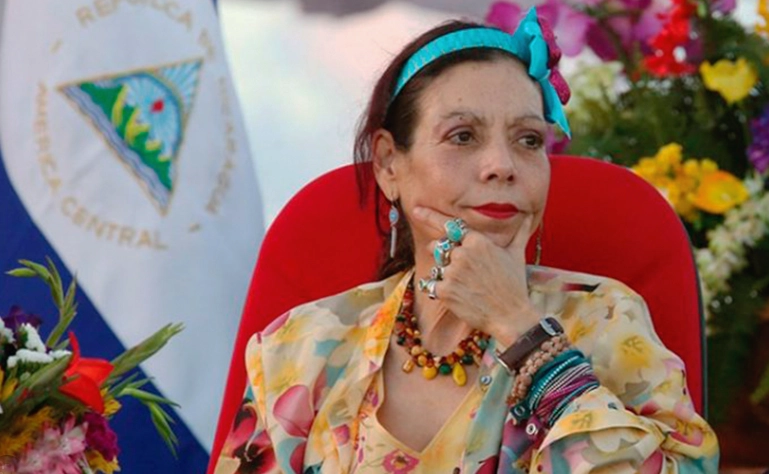Conflict management, or, in other words, politics, will always require reforms and power struggles. To fulfill an electoral program, it is necessary to implement changes in a specific direction. Change and competition are inherent to politics. However, the style and purpose of reforms differ radically when parties and political elites seek to remain in power on an ongoing basis. Distinguishing between these two types of reforms can often be a confusing game of nuance. Nevertheless, the recent purge of more than 900 officials from the Nicaraguan Judicial System leaves no room for doubt: we are witnessing one of the most significant structural changes marking the beginning of the Ortega-Murillo-Laureano succession. We are not talking about a political reform, but an attack on the separation of powers to eradicate any vestige of opposition.
The first step to establishing and maintaining a one-party political regime is to gain access to the representative institutions and, from there, change the fundamental rules of the state in your favor. Daniel Ortega has understood perfectly well the importance of reforms and how to use them strategically. In 2009, two years after assuming power, Article 147 of the Constitution was declared inapplicable by the Nicaraguan Supreme Court, paving the way for his reelection in 2011. The possibility of reelection was consolidated in 2013. With the Sandinista National Liberation Front (FSLN) controlling the Assembly, another constitutional reform proposal by the president was approved, allowing for indefinite reelection, the first-round election of the president, and the president’s ability to issue decrees with the force of law. Two years ago, the international community watched the reelection scene with disbelief.
Last October 25, Rosario Murillo issued the order to intervene in the Judicial Branch, which has — or had — more than 9,000 employees. Approximately 10% of the staff has been dismissed without severance pay, employment benefits, pensions, or even a letter of dismissal, and this has affected everyone from administrative staff to several court magistrates.
This attempt to consolidate power is aimed at eliminating defectors and rewarding loyalists. An example of this is the case of Horacio Rocha, the former retired Commissioner General who was charged with carrying out Murillo’s order. Having been named presidential advisor on security issues a year ago, it is very likely that this is not the last time we will see this prominent figure carrying out government purges. His career in the police is public knowledge, but his role as bodyguard and security goes back to 1997 under Arnoldo Alemán. After a hiatus of almost a decade, his long career is back with a vengeance.
In connection with the Murillo purge, former president Alba Luz Ramos now leaves her office to make way for Marvin Ramiro Aguilar. Along with her, other magistrates such as Yadira Centeno were expelled from the building after the arrival of several police patrols. The coup has been carried out with precision and the control over the Judicial Branch now resembles the control the government already has over other branches of government, such as the Ministry of Foreign Affairs. In internal communiqués, the now acting president Aguilar is pointed out as the one responsible for the dismissals. This puzzle will be solved when the vacancies are replaced by magistrates, judges, and officials loyal to the regime.
But how did we get to this point? Once again, the answer lies in the instrumentalization of the reforms. A Constitution that now seems to be worthless allows that, with the approval of the Assembly, with a pro-government majority, it has been possible to reduce the powers of the Supreme Court of Justice. Sandinista legislators argue that the Public Registries will be able to offer services in a more efficient and optimized manner if they are integrated into the Attorney General’s Office, which is attached to the Executive Branch.
This is the second term with Ortega as president and Murillo as vice president, but it is already the fifth term — not consecutive — since the controversial reelection of the former combatant. Tension at the national level is evident, especially after the serious incidents that occurred after April 18, 2018, resulting from the reforms of the Nicaraguan Social Security Institute that increased interest rates and retirement age, leaving nearly 400 deaths after the intervention of police and paramilitary groups. Last July, the Sandinista government approved a constitutional reform to take control of the police, once again blurring the line between state forces that are supposed to be impartial and ideological organizations that operate as ideological arms of the parties. As a result, the Attorney General’s Office, the Judiciary, and the National Police are currently under the control and at the service of the Sandinista majority executive.
This illustrates why the National Police has not provided explanations for the intervention in the Supreme Court, the arbitrary eviction of workers, and the reason for the numerous arrests and investigations. The regime not only consolidates itself as a one-party regime but also as a de facto police state. On the other hand, the Law for the Defense of People’s Rights passed in 2020 ensures that any dissent can be considered a threat to the established political order, prohibiting opponents from participating in protests or running for office.
This scenario places the nation in a difficult position in terms of respect for human rights. International accusations, penalties, and warnings have been quick to emerge. Following the disqualification of the 2021 elections by the General Assembly of Foreign Ministers of the Organization of American States (OAS) for failing to comply with a resolution on the criteria for free, democratic, and transparent elections, Denis Moncada sent a letter requesting Nicaragua’s withdrawal from the regional forum. Two years after that letter, on November 19, 2023, Nicaragua’s exit from the OAS was finalized. However, this and other organizations, such as the Inter-American Commission on Human Rights, have warned that, although the Ortega regime does not subscribe to the OAS Charter and its commitments, it must respect the international conventions of protection and respect for human rights, established in the Universal Declaration and the Inter-American Bill of Rights.
*Translated by Janaína Ruviaro da Silva from the original in Spanish.












